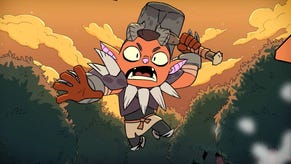Steam's new tiered revenue share system draws backlash from indie devs
Valve gives Steam devs a bigger slice of the cake for bringing in the big bucks, and receives backlash from indie studios.
A new revenue share system has been introduced on Steam that will benefit developers of big-budget games by giving them a larger slice of the pie than their indie counterparts. Valve has announced that games earning over $10 million on Steam will see the revenue split go from the current industry standard 70% to developers and 30% to the platform to 75/25, while games earning over $50 million will have the split adjusted to 80/20.
"The value of a large network like Steam has many benefits that are contributed to and shared by all the participants. Finding the right balance to reflect those contributions is a tricky but important factor in a well-functioning network," reads the update.
"It’s always been apparent that successful games and their large audiences have a material impact on those network effects so making sure Steam recognizes and continues to be an attractive platform for those games is an important goal for all participants in the network."
The revenue period will be backdated to October 1, 2018, and includes game bundles, DLC, in-game purchases, and Community Marketplace game fees.
"Our hope is this change will reward the positive network effects generated by developers of big games, further aligning their interests with Steam and the community."
The news hasn't been well-received by everyone, with indie devs voicing their criticisms on Twitter.
Vlambeer's Rami Ismail called out the platform for subsidising "big game productions...with the broken dreams of aspiring devs".
Mariusz Chwalba, developer of Rings of Saturn, countered that the change isn't bad news for indies as their revenue split remains unaffected and at the industry standard.
"The deal *is* worse for indies, because before the deal was equal for indies. Now it's not," Ismail responded.
Adriaan de Jongh, developer of Hidden Folks, created a thread recounting a conversation he had with his Steam rep on the issue.
The gist is that big games bring more people to the platform and increase revenue for everyone, and that giving bigger cuts to devs that earn less - not more - incentivises them to earn less.
The second big change is an amendment to the agreement of the confidentiality of sales data, that will now allows devs to sell their sales data "as they see fit," including sharing that information with other developers and any other third parties.








.png?width=291&height=164&fit=crop&quality=80&format=jpg&auto=webp)

